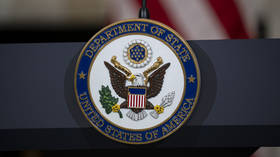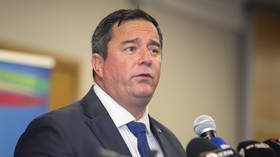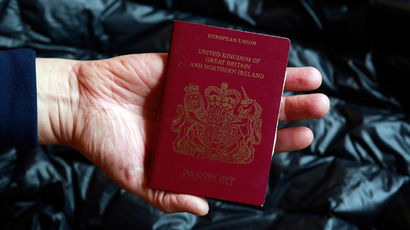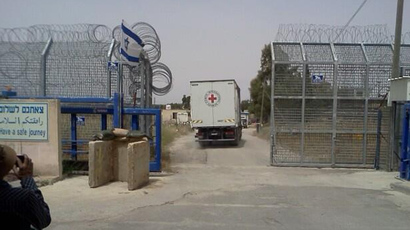US says it will increase aid to Syrian rebels
US Secretary of State John Kerry has said that the US and its allies will expand their support to the Syrian opposition. Kerry’s comments come after a US general said the Syrian rebels do not have the means to defeat President Assad.
US Secretary of State John Kerry who was meeting British Foreign Minster William Hague in London said the US and its allies had agreed to increase their support to the Syrian opposition but did not specify if he meant arming them.
Kerry said he was open to increasing aid to Syria but said that no decision has been made on changing the general US aid strategy to Syria.
Syrian rebels have no force capable of holding government to administer aid and wage attacks against the current Assad regime, General Martin Dempsey, the chairman of the Joint Chiefs of Staff, told the Atlantic Council, a think tank in the field of international affairs, in Washington, DC.
“They need the force they have now, which is trying to protect local villages and try to harass the regime and level the playing field. They need something that eventually will be able to hold ground,” he said.
He added that the militants who are currently fighting the Assad regime don’t have any “counterterrorism capability” to completely eliminate the Al-Qaeda -linked groups in the crisis-torn country.
"And we're not on a path currently to provide that," he added.
According to Dempsey, if rebels oust Syrian president, the country would still be in crisis.
"If Assad took his family and all of his cronies and departed Syria today, how does that country ... articulate itself?" he asked.
Dempsey, along with senior US military leaders including Chief of Staff of the US Army General Raymond T. Odierno, while trying to prepare military options in Syria for President Barack Obama, have publicly questioned the deployment of US troops in the conflict country after the insurgents oust Assad.
“I’ve heard it described as a succession of conflicts. You have the conflict that currently exists; then there’ll be the second conflict, which is kind of an internal conflict; and then there’ll be the third conflict against the terrorist organizations that are growing,” he said. “That’s probably right.”
Meanwhile, the US still continues to provide help for the Syrian insurgents. On May 5, US authorities offered $27 million in additional help for the rebels. Also the Syrian Opposition Council’s offices in the US will soon become formal diplomatic missions.
Obama administration repeatedly said conflict in Syria can only be solved if Assad steps down as president. In May a senior US administration official denounced the upcoming June elections, where Assad will also take part, as "a parody of democracy.”
According to Mark Seibel, chief of correspondents, McClatchy newspapers, US are only deepening the crisis situation in Syria.
“There can be no military solution and yet every step that we [US] are taking is a military step and so obviously what we were setting up is a longer term conflict, more conflict,” he told RT.
Brian Becker, director of the Answer Coalition, told RT that politics of the Obama administration towards Syria only worsened the situation in the country.
“Armed opposition isn’t winning on the battlefield and … doesn’t have a popular base of support necessary to oust the Assad government,” he added.
Syria was plunged into civil war in 2011 when peaceful uprisings against Assad descended into violence. More than 150,000 people have been killed and millions more have been displaced in the three years since fighting began. The international community made significant progress in 2013, when the US and Russia agreed that Syria should destroy its chemical stockpile following an attack in Damascus on August 21, 2013.
The Organization for the Prohibition of Chemical Weapons-UN task force confirmed in May that at least 92 percent of the weapons stockpile had been removed from the war-torn nation.
The negotiations neared the end of a second week with no sign of progress.
In January, Russia and the US organized the Geneva 2 peace talks between Assad’s government and the Syrian opposition. However, after two rounds of negotiations, no agreement was reached. No date has been yet set for the third round of negotiations, during which the Syrian government and the opposition-in-exile have agreed to discuss putting an end to violence, fighting terrorism, and the formation of a transitional government body.
US Secretary of State John Kerry who was meeting British Foreign Minster William Hague in London said that he has seen data that suggests the Syrian army has used chlorine gas against its own people, although he stressed that the data hasn’t yet been verified.
“I have seen the raw data that suggests, that there may have been, as France suggested, a number of instances in which chlorine has been used in the conduct of war,” said Kerry.
He also said that the US and its allies had agreed to increase their support to the Syrian opposition but did not specify if he meant arming them.
Kerry said he was open to increasing aid to Syria but said that no decision has been made on changing the general US aid strategy to Syria.














